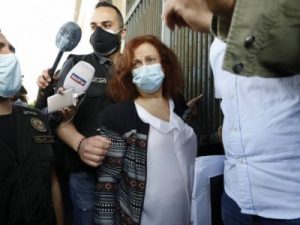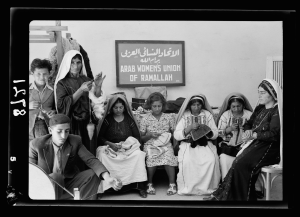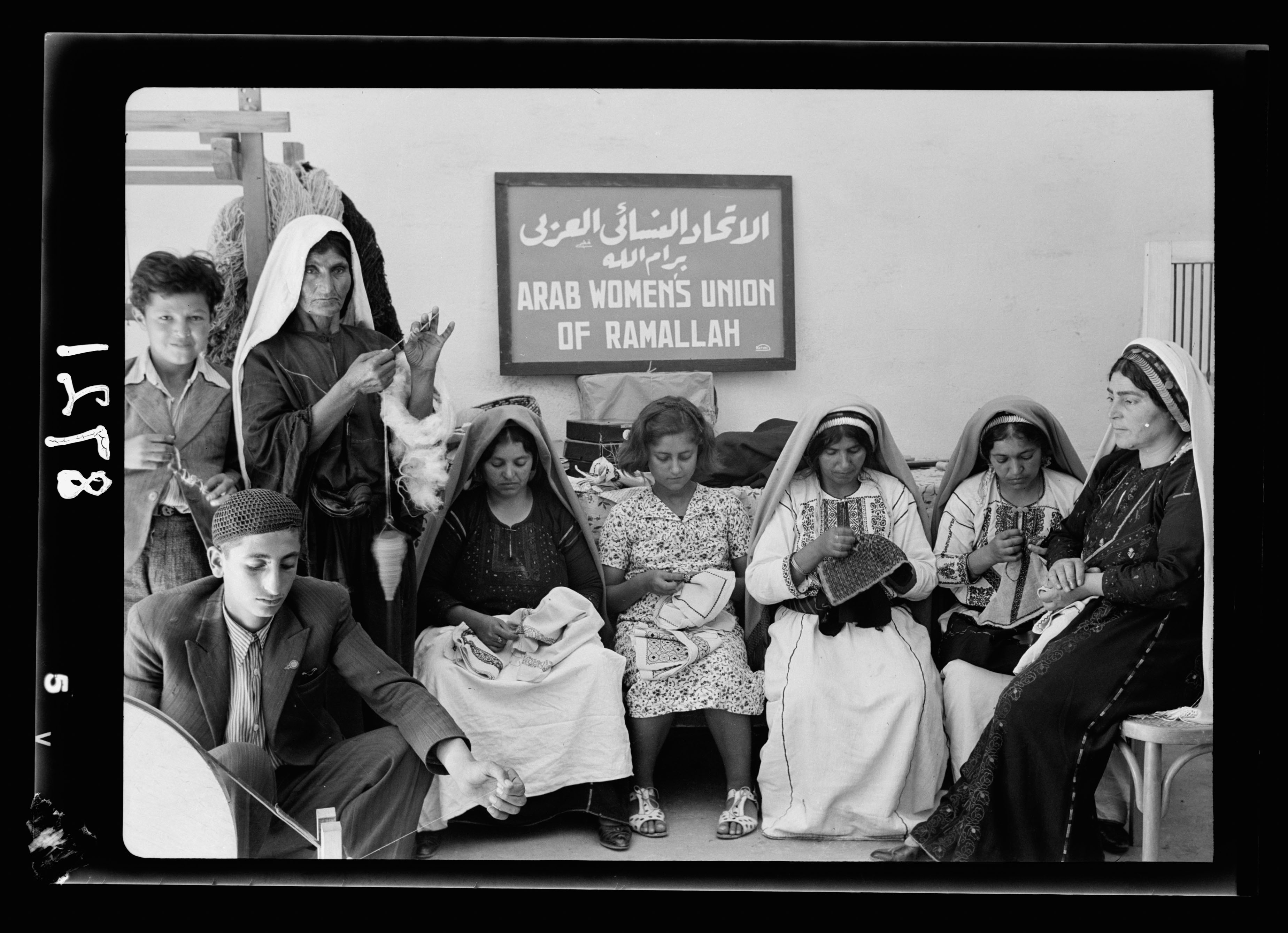Lebanon is in the throes of a severe economic crisis, classified to be one of the worst three crises worldwide since the 1850s. The Lebanese Pound (LBP) crashed, more than 55 percent of the country’s population is now trapped in poverty and struggling for bare necessities. In addition to this, unemployment rose to around 40%, prices skyrocketed, and Lebanon became the first country in the Middle East and North Africa (MENA) region to suffer from hyperinflation. This has affected the lives of every Lebanese, leaving all groups of the population feeling increasingly distressed, hopeless and disappointed. Nevertheless, this is not a precedent. Lebanon has traced stories of disappointments across history, especially for the diaspora. However, this time is much different.

Credits: Statista. (2021, May 11). Inflation rate in Lebanon 2020 [Dataset]. Statista.com.
The first time Lebanon failed its citizens was the time they had to leave because their country did not provide job opportunities that generated enough income for them to live decently and be self-sufficient. Despite this, the Lebanese diaspora showed commitment to their homeland. They spent their vacations in it, invested in its real estate, and enrolled their children in its universities. On top of that, the Lebanese diaspora, which is estimated to be around 14 million people, i.e. more than twice the size of Lebanese living inside the country, have continued to send billions of dollars in remittances yearly. In fact, Lebanon is one of the largest remittance-receiving countries worldwide, with inflows averaging around 7 billion US dollars per year. Lebanon is heavily reliant on these as they have been the stabilizer of the economy, injecting liquidity and capital flow over the past decades during times of insecurity and political instability. As a net importing country, with an artificially-maintained pegged system and heavy hard currency indebtedness, these billions of dollars are much needed.

Credits: KNOMAD. Remittance inflows to Lebanon (2010–2020). [Dataset]. knomad.com.
Cost of sending remittances to Lebanon from abroad by country. (Compiled by the Al Rawiya Economics Team using data from Arabian Business, 2020)
Unfortunately, Lebanon failed its diaspora again, this time the wound is as deep as the sea and its scar is eternal. Following the beginning of the historic October 17 protests in 2019, Lebanese living abroad flew over and took to the streets condemning widespread corruption and demanding fundamental political change. They wanted to contribute to the birth of a new Lebanon, but the country continued to fail them and nothing has changed. The ruling class which has been in power since Lebanon’s 1975 – 1990 civil war is still the same.
The frustration grew further when Lebanese banks hijacked their dollar deposits. All their life savings are stuck in the banks, with very limited withdrawals or transfers abroad. The crisis unveiled that more than 123 billion US dollar (foreign currency) deposits disappeared and only a considerably small amount remains available, with no plan to pay it back. The diaspora worked years abroad, away from their loved ones, depriving themselves of the long-standing hope of a comfortable retirement in their home country surrounded by their family and friends, only to discover that their hard-earned money has vanished and no one wants to take responsibility, try to find a solution, or stop the drain. The failure of the banking system, one of the largest Ponzi schemes worldwide, left a feeling of intense anger, frustration, and rage among depositors both in Lebanon and abroad. Why? The answer is simple – they felt like they entrusted someone with all their money and then it ended up being gambled away as if it meant nothing.
The Beirut port explosion was the final, most severe blow. Considered one of the biggest non-nuclear explosions in history, killing more than 200 people, injuring around 6,000, and destroying thousands of homes, the blast was the result of negligence, corruption, and mismanagement. It was a clear signal that Lebanon cannot provide its citizens with the minimum security to live safely and peacefully. In addition, the flawed blast investigation proves that justice won’t be achieved and that Lebanese politicians are a red line that cannot be crossed.
Also, frequent verbal political attacks by Lebanese politicians on Gulf Cooperation Council (GCC) states, especially Saudi Arabia, represent a constant threat of expulsion of more than 380,000 Lebanese working in the Gulf. Such actions weaken the bilateral relations between Lebanon and the GCC states and risk the livelihoods of many of the Lebanese diaspora. In addition, they create an environment of uncertainty, anxiety, and apprehension that are unsettling many of the Lebanese living and working there.
Almost two years after the October revolution, the diaspora are losing hope given the multifaceted crisis and the political status quo. It appears that the calls for reform and change in the political system remain unanswered, and the situation in the country is only worsening, to the point that Lebanon has turned into a failed state. While political parties are still fighting over ministerial seats, the Lebanese people are struggling and facing many daily challenges including, frequent power outages, shortages of crucial medications, currency devaluation, inflation, and queuing for hours to buy petrol. This new norm in Lebanon is making the Lebanese community living abroad lose hope and might even push them away from spending their vacations in their beloved homeland. They have always infused Lebanon with savings, investments, and experience, but this will change. Today, they are unwilling to send cash, reluctant to come home for the summer with all the shortages in basic necessities, and very cautious when it comes to buying a property in the Lebanese real estate market.

Credits: Where the Lebanese diaspora are located around the world – an interactive distribution map, compiled by the Al Rawiya Economics Team using data from Arab News, 2018)
Remittance inflows from the diaspora have always been vital for the stabilization of the Lebanese economy and are amongst the main factors for the country’s financial and economic recovery. Therefore, restoring the Lebanese diaspora’s confidence should be a top priority of any future plan. This can be achieved through a bold road map that includes revolutionary reforms that will put Lebanon on the right track to achieve sustainable development. Some of the actions should include forging a deal with the International Monetary Fund (IMF), distancing the country from all geopolitical conflicts, and holding early parliamentary elections that the Lebanese diaspora can take part in.
“The sudden disappointment of a hope leaves a scar which the ultimate fulfillment of that hope never entirely removes” – Thomas Hardy
We can all do our bit to help, here are some practical ways that you, as the Lebanese diaspora, can stand by Lebanon and provide much-needed assistance no matter where you are in the world.
Credits: @ddoesbusiness (2020, July 23). How can expats support Lebanon [Instagram Post].
Danielle Hatem is the founder and Chief Creative Officer of D Does Business, an influential blog highlighting strategic economical facts and figures, with the aim to create more awareness about latest business headlines and influence and motivate the youth into entrepreneurship and business growth. Today, D Does Business has around 36K followers. Danielle has 15 years of work experience in local and international financial institutions. She started her career at Merrill Lynch in Paris in private banking and shifted to consulting within BNP Paribas Group and Euronext. Danielle moved to Lebanon in 2008 to work as a trader at FFA Private Bank. In 2012, she took a financial advisory role at Crest Investment Company. Her cross-functional responsibilities included geopolitics, economics, and financial advisory. With respect to her educational background, Danielle holds a Bachelor of Economics from the American University of Beirut (AUB), a Master in Finance from the University of Warwick in the United Kingdom, and an Executive Master in Finance from HEC Paris.
-
This author does not have any more posts.

















